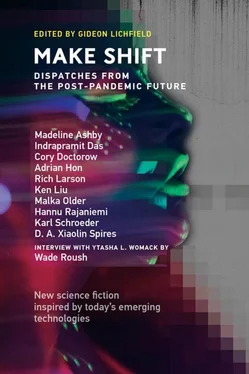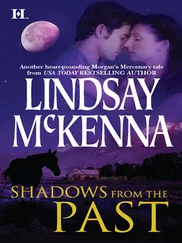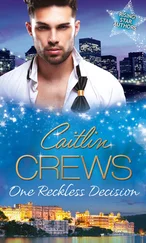But at least one movement within sci-fi may be equal to this moment, in part because it grows out of a history of displacement, atrocity, and instability. It’s Afrofuturism, the effort to explore technological and social change from the point of view of people of African descent and members of the African diaspora.
Ytasha L. Womack, a Chicago-based author, filmmaker, scholar, and dance therapist, helped explain and popularize the genre in her widely cited 2013 volume Afrofuturism: The World of Black Sci Fi & Fantasy Culture . And she explores and expands it in her own fiction, including the “Rayla Universe” series, about a resistance fighter on a future Earth colony that’s fallen into dictatorship. She is a former reporter for the Chicago Defender , the nation’s oldest Black-owned daily newspaper, and in 2010, she wrote Post Black , which celebrated the huge range of African American cultural, social, and political identities overlooked by mainstream media portrayals.
In an email interview in late July 2020, Womack told me she believes the year’s tumultuous events are finally awakening white Americans to the ways they consciously or inadvertently contribute to the invented hierarchies that overlook or oppress people of color. In one sense, therefore, the pandemic, the resulting economic upheaval, and the explosion of resistance to violence by the state against private citizens are more material for the kinds of social change that Black people have struggled to promote for centuries. And from this larger perspective, Womack says, Afrofuturism is simply one modern manifestation of the age-old “resilience tools” that help Black communities enact and navigate that change.
WR:It’s been five months since the coronavirus pandemic exploded in the United States, and two months since police murdered George Floyd in Minneapolis, and I think it’s fair to say these are difficult times. So I wanted to ask first: how have you been coping with 2020?
YW:2020 has been revelatory, insightful, and I found myself thinking on resilience, particularly in the content of Afrofuturism. In December 2019, I had the deep urge to complete the draft of a graphic novel I was writing before March 2020. I had the very strong feeling that spring 2020 would be fluid. I had a lot of speaking engagement requests for that period and some other possible work, and I just felt like I had to finish this first draft of Blak Kube , my story about Egyptian gods and creativity, before March or else. I wasn’t aware that this ethereal nudging was speaking to a greater societal shift.
Nevertheless, the day I finished the draft was the same day I led a live dance and music improvisation experience at the Adler Planetarium to bring the Rayla 2212 utopia to life for “A Night in the Afrofuture.” I coordinated freestyle interplay between DJ/sound healer Shannon Harris; Leon Q, my cousin and a trumpet player; Kenneth “Djedi” Russell, a tap and West African dancer; Discopoet Khari B, a poet and a house music dancer; another conga player; and myself. I was a space dance conductor of sorts and we did these interactive shows utilizing call and response dance with an unsuspecting audience in a 360-degree visual dome usually reserved for sky shows. I led audiences in dance movement with an array of Afrobeat, Chicago house, samba, and South African house music as our music of the new utopia.
The event felt like a vortex of energy. I like using music and dance to create multidimensional spaces as a metaphor for exploring both inner and outer space. African/African diasporic dance at its core has functioned as interdimensional. People were so happy. It felt like the beginning of one thing and the end of something else.
The following morning I flew to Atlanta to speak at Planet Deep South, a conference on Afrofuturism. The conference is designed to highlight southern voices and works in Afrofuturism. The conference took place at the Atlanta University Center, an amalgamation of historically Black colleges. I’m a Clark Atlanta University alumna and my initial experiences with Afrofuturism took place on that campus. The conference was organized by Dr. Rico Wade and Clinton Fluker. I gave a keynote speech on Afrofuturism literally at noon the day after the “Night in the Afrofuture.” Ruha Benjamin spoke that evening on discrimination in computer applications and algorithms.
Dr. Wade gave me a tour of the rampant gentrification in Atlanta. Within two or three days I was in New York City for an event for Kehinde Wiley. As soon as I landed I learned the event was canceled. The next few days, I was in New York going to the Brooklyn Museum for Kehinde’s show with my friend Ravi. Talk of the virus was mounting. Then South by Southwest was canceled and it felt as if a door was shutting and I had to slide through a window of time to get back home.
Three days later, I was back home in Chicago buying bags of nonperishable groceries, reading how to survive the apocalypse guides, and hunkering down for the Illinois stay-at-home order that was in effect. Somewhere in those moments before lockdown, I remember being in a health food store with mostly African American patrons. People were stocking up on garlic, ginger, echinacea, and every herb or vitamin people knew of to build their immune systems. People were walking around with lists of supplements and teas that family members gave them to buy. In that moment, I grew angry.
Simultaneously, my stepdad was trying to schedule appointments with his doctor. He believed he had the virus. His physician wouldn’t see him. When he went to [the] emergency [room], he was told he had acid reflux. In order to get a COVID-19 test in the early weeks, one had to have a letter from their physician. We tried to get other physicians to meet with him. None returned calls. By the time we got him to a clinic with a physician who would give him a test, he had to be rushed to the hospital and placed on a ventilator immediately. My mother had to go into self-quarantine. We couldn’t see my stepdad. I was quarantined because I spent time with both in the previous day. For the next two days, I’m reading nothing but news from futurists posting dire scientific information for the world. During the period I’m thinking, outside of the information that’s recommending masks and cleaning processes, where are the tools of resilience?
Where is the inspiration to keep one fed and their soul enriched during tough times? I literally found myself thinking on spirituality, food, family. Who are the people I talk to to keep my consciousness vibrating highly? What music has the ideal lyrics and frequencies to keep me uplifted? What combinations of food are best to enhance my immune system? What candles do I light? What scents and colors keep me feeling vibrant? How do you hold a healing consciousness for others? What dances keep me refreshed? Am I engaging with nature enough? I was so thankful for all the people who wrote books, created music, and made movies in the past that I could engage in during that bizarre period. I was so thankful for deejays like DJ D-Nice, Questlove, and others who claimed the role of the deejay as a musical shaman.
Within two weeks my stepdad was off the ventilator and back home. The experience was a miracle and I had a very transformative experience putting to practice basics around spiritual grounding, food, and consciousness. The following week, at my brother’s urging, I started a weekly Instagram Live called Utopia Talks .
These epiphanies were, literally, my month of March. When the atrocities with George Floyd, Ahmaud Arbery, and later Rayshard Brooks took place I had a conscious awareness of tools to work with around resilience. I had an uncle who was murdered by a police officer in New Orleans in the 1970s before I was born, so my family has created practices of remembrance and healing around such atrocities. I spent a great deal of time in May and June devoted to a daily processing of the politicization of the daily shifts, some of which were in line with incidents of the past, others of which were not.
Читать дальше












